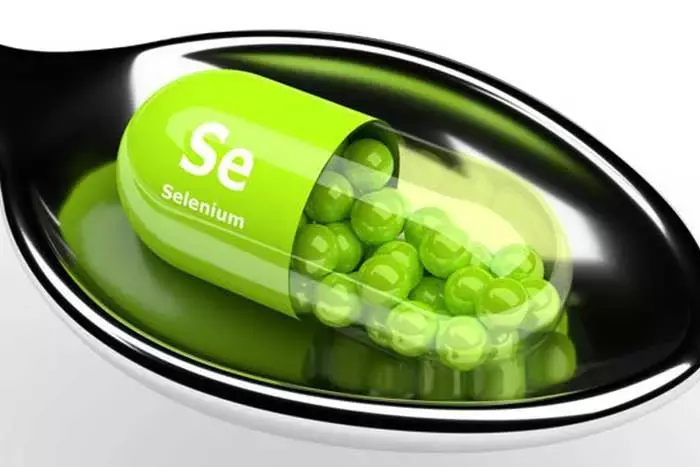- Home
- Medical news & Guidelines
- Anesthesiology
- Cardiology and CTVS
- Critical Care
- Dentistry
- Dermatology
- Diabetes and Endocrinology
- ENT
- Gastroenterology
- Medicine
- Nephrology
- Neurology
- Obstretics-Gynaecology
- Oncology
- Ophthalmology
- Orthopaedics
- Pediatrics-Neonatology
- Psychiatry
- Pulmonology
- Radiology
- Surgery
- Urology
- Laboratory Medicine
- Diet
- Nursing
- Paramedical
- Physiotherapy
- Health news
- Fact Check
- Bone Health Fact Check
- Brain Health Fact Check
- Cancer Related Fact Check
- Child Care Fact Check
- Dental and oral health fact check
- Diabetes and metabolic health fact check
- Diet and Nutrition Fact Check
- Eye and ENT Care Fact Check
- Fitness fact check
- Gut health fact check
- Heart health fact check
- Kidney health fact check
- Medical education fact check
- Men's health fact check
- Respiratory fact check
- Skin and hair care fact check
- Vaccine and Immunization fact check
- Women's health fact check
- AYUSH
- State News
- Andaman and Nicobar Islands
- Andhra Pradesh
- Arunachal Pradesh
- Assam
- Bihar
- Chandigarh
- Chattisgarh
- Dadra and Nagar Haveli
- Daman and Diu
- Delhi
- Goa
- Gujarat
- Haryana
- Himachal Pradesh
- Jammu & Kashmir
- Jharkhand
- Karnataka
- Kerala
- Ladakh
- Lakshadweep
- Madhya Pradesh
- Maharashtra
- Manipur
- Meghalaya
- Mizoram
- Nagaland
- Odisha
- Puducherry
- Punjab
- Rajasthan
- Sikkim
- Tamil Nadu
- Telangana
- Tripura
- Uttar Pradesh
- Uttrakhand
- West Bengal
- Medical Education
- Industry
Selenite Supplements Might Prevent Obesity, finds Study

Obesity is a chronic and progressive disease that affects a significant proportion of the world's population. In an in-vitro study, researchers have found that selenium as selenite reduces lipid accumulation in mature adipocytes. The study findings were published in the journal Nutrition on 27 September 2021.
Previous clinical studies demonstrated the correlation between obesity and systemic oxidative stress and, preliminary studies in animal/ in vitro models acknowledged a significant role of antioxidant enzymes in regulating adipogenesis. Selenium is an essential micronutrient that has potent anti-oxidative and anti-inflammatory properties through its incorporation in selenoproteins. However, the exact mechanisms by which selenium may affect adipogenesis are not clear. Therefore, Dr Giovanna Bermano and her team conducted a study to assess the effect of the micronutrient selenium, as inorganic selenite, on adipocytes differentiation, and to identify underlying molecular mechanisms to advance the understanding of basic cellular mechanisms associated with adipogenesis.
The researchers evaluated the effect of sodium selenite (Na2SeO3) on cell viability (bromide 3-[4,5-dimethylthiazol-2-yl]-2,5-difeniltetrazol [MTT] assay) in preadipocytes, lipid accumulation (oil red O [ORO] assay) and intracellular reactive oxygen species (ROS, [NBT assay]) in mature adipocytes, as well as explore molecular mechanisms via gene expression analyses (real-time quantitative polymerase chain reaction), before and after differentiation using 3T3-L1 murine preadipocytes.
Key findings of the study:
- Upon analysis, the researchers found that selenite (100, 200, and 400 nM) significantly decreased lipid accumulation during differentiation compared with untreated adipocytes.
- They noted that preadipocytes exposure (48 h) to selenite increases the glutathione peroxidase 1 (Gpx1) gene expression in a dose-dependent manner.
- They found that adipogenesis significantly increased intracellular reactive oxygen species levels while decreasing gene expression of antioxidant enzymes and significantly increased gene expression of regulators of lipid catabolism (type II iodothyronine deiodinase [Dio2]) and markers of differentiation compared with preadipocytes.
- They noted that selenite exposure (200 nM) caused a significant increase in Gpx1, selenoprotein W (Selenow) and selenoprotein P (Selenop) gene expression, in adipocytes compared with untreated ones with a significant decrease in heme oxygenase 1 (Ho-1), cyclooxygenase 2 (Cox2), Dio2, and Fabp4 gene expression.
The authors concluded, "Selenium, as selenite, prevented adipogenesis through increasing antioxidant selenoprotein expression, leading to decreased inflammatory markers and, subsequently, to a decrease in differentiation and lipid deposition. These findings, if demonstrated in vivo, could provide valuable data for novel dietary approaches to prevent obesity."
For further information:
Medical Dialogues Bureau consists of a team of passionate medical/scientific writers, led by doctors and healthcare researchers. Our team efforts to bring you updated and timely news about the important happenings of the medical and healthcare sector. Our editorial team can be reached at editorial@medicaldialogues.in.
Dr Kamal Kant Kohli-MBBS, DTCD- a chest specialist with more than 30 years of practice and a flair for writing clinical articles, Dr Kamal Kant Kohli joined Medical Dialogues as a Chief Editor of Medical News. Besides writing articles, as an editor, he proofreads and verifies all the medical content published on Medical Dialogues including those coming from journals, studies,medical conferences,guidelines etc. Email: drkohli@medicaldialogues.in. Contact no. 011-43720751


